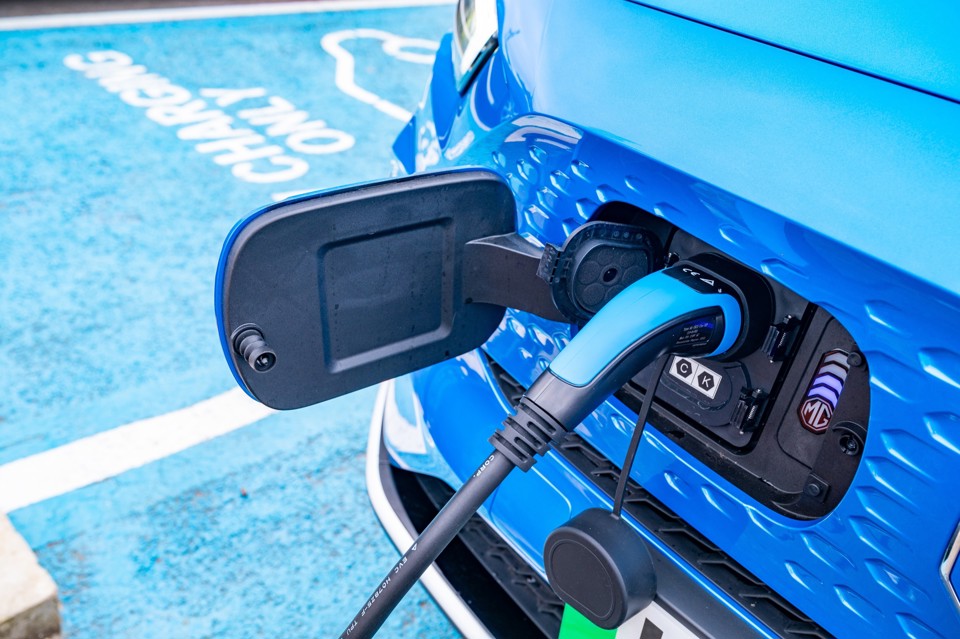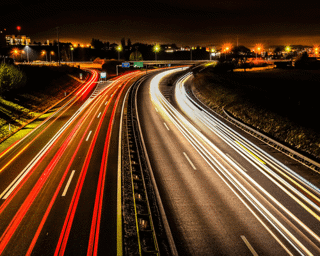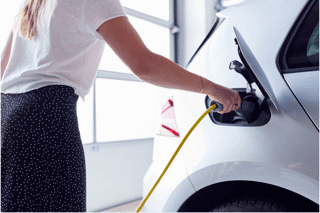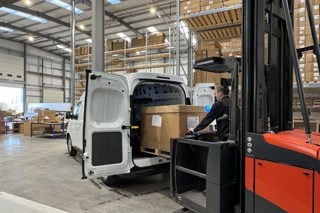Electric vehicles (EVs) could be subject to vehicle excise duty (VED) for the first time under plans being considered by the Chancellor, Jeremy Hunt.
The Treasury has previously warned that new sources of revenue would be needed as the uptake of EVs increases.
Fuel duty and VED combined raise about £35 billion for Government coffers but, according to the Office for Budget Responsibility (OBR) the growing share of electric cars will cut motoring tax revenues by £2.1bn by 2026-27.
The Government claimed in a recent report that “radical reform” was needed otherwise there would be no revenue from motoring taxation once net zero is reached in 2050, and potentially even before in 2040.
The report stated: “The Government must make it clear to motorists who purchase electric vehicles that they will be required to pay for road usage, as is currently the case for petrol and diesel vehicles.
“It must ensure that any alternative road charging mechanism incentivises motorists to purchase vehicles with cleaner emissions while contributing tax revenues to support the maintenance of the road network.”
Some form of road pricing was understood to be under consideration by ministers to plug the shortfall in motoring taxes longer term. However, Whitehall sources now suggest that VED for electric cars could be introduced from 2025-26, although the Treasury declined to comment on “speculation” ahead of the November 17 Autumn Statement.
EVs are currently exempt from the annual £165 VED standard rate and the £335 "premium supplement" on new cars costing £40,000 or more.
Fewer than one-in-five 'support' VED on EVs
The introduction of VED on EVs is supported by fewer than one-in-five (18%) of drivers, a survey from Venson Automotive Solutions suggests.
The vehicle leasing company, which surveyed 500 motorists, also found that one-in-four (23%) of drivers believe a road-use pricing scheme, like those successfully introduced in Sweden, Germany and Singapore, would be a better option.
Road-use pricing schemes – most favoured as a revenue alternative by survey respondents - levy direct charges for the use of roads. These include road tolls, distance or time-based fees, congestion charges and charges designed to discourage the use of certain classes of vehicle, fuel sources or more polluting vehicles.
Less popular revenue making options include a 'pay-as-you-drive' scheme, utilising telematics to monitor driver behaviour and speed, which was backed by 9% of respondents and a tax based purely on miles driven, utilising data collected annually from an MOT test, supported by 8% of motorists.
However, while 28% of those surveyed said they are unsure what the best solution would be, the impact the fleet sector is having on EV take-up has not gone unnoticed by motorists. 13% said they believe that a specific EV ‘business use’ charge for company car and van drivers should be introduced.
Alison Bell, operations director at Venson Automotive Solutions, said: “Around one in six new cars bought in Britain this year are fully electric. Whatever decision is made to address the shortfall in motoring tax revenue, the Government won’t want to stall the uptake of EVs.
"Any solution introduced needs to be a fair and cost-effective solution for both business and leisure drivers, with enough incentive to ensure the UK’s electric transition continues at pace.”
> Interested in comparing electric vehicle data? Check out our EV tool.
> Interested in ensuring the efficient use of EVs. Check out our dedicated editorial sections: Insight & policy | EV news | Charging & infrastructure | Costs & incentives | Benefit-in-kind | EV case studies | EV road tests






















Login to comment
Comments
No comments have been made yet.